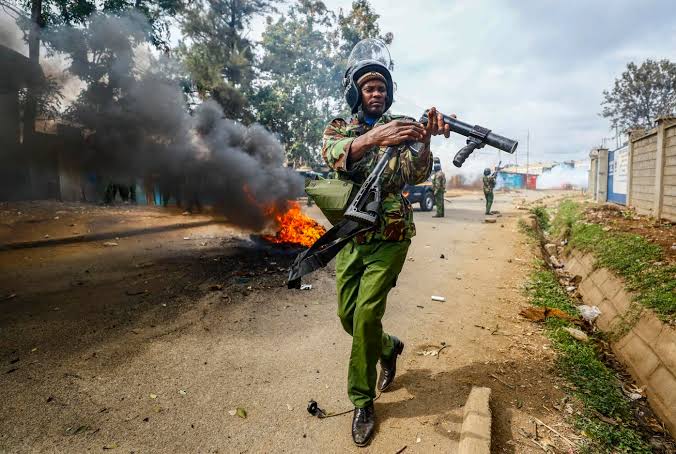
Faith Nyasuguta
A recent offer by Kenya to dispatch 1000 police officers to Haiti has prompted concern among human rights groups who say the move could worsen the country’s security crisis.
Ariel Henry, Haiti’s prime minister, called for international support from the UN in 2022 when gangs began taking control of much of the country, engulfing the nation in chaos as they fought pitched street battles.
The pledge last week from Kenya to “deploy a contingent of 1,000 police officers to help train and assist Haitian police restore normalcy in the country and protect strategic installations” was welcomed by Canada, the US and the UN secretary general.
However, it has raised concerns from experts and civil society groups given the police force’s poor human rights record.
According to Human Rights Watch, Kenyan riot police beat protesters and gunned down civilians during the country’s Covid-19 curfews and never sufficiently addressed the grave rights violations,
At least 30 people in Kenya’s poorest neighborhoods were killed by the police in July during protests over the rising cost of living, a local group told Associated Press. Police are also accused of carrying out forced disappearances.
“We had some consultations with Kenyan [civil society organisations] last week and there was general consensus that Kenya should not be seen to be exporting its abusive police to other parts of the world,” said Otsieno Namwaya, east Africa director for the Human Rights Watch.
Haitians will be especially wary of any human rights abuses given the country’s long and dark history of failed foreign intervention. UN peacekeepers were accused of sexually abusing women, leaving hundreds of fatherless children behind and introducing cholera.
Kenya has participated in several UN peacekeeping missions across Africa and received counter-terror training from the US, meaning they have some of the necessary experience to take on Haiti’s armed bandits, said Benedict Manzin, Lead Analyst for the Middle East and Africa at risk analysis firm, Sibylline.
“Their record is mixed, however,” Manzin said. “In Somalia, where Kenyan forces have supported offensive operations, al-Shabaab attacks continue despite the Kenyans operating there for over a decade.”
Manzin noted that Kenyan peacekeepers were accused of supporting local smuggling rings. With armed groups extorting much of Haiti’s business and corruption penetrating the highest levels of politics and policing, any external force is likely to become entangled in Haiti’s criminal economy.
But proponents of intervention argue that Haiti cannot be left to suffer alone. Its brutal armed gangs routinely commit human rights abuses – including using sexual violence as a weapon – and Haitian police, outgunned and outmanned, have been powerless to stop them.
The criminal groups capitalized on a power vacuum in the wake of the assasination of President Jovenel Moïse in 2021 and now control two-thirds of the capital along with key roads and ports.
About 200 factions have paralyzed much of Haiti’s economy, triggering the worst hunger crisis in the country’s history and contributing to the return of cholera.
The security situation has deteriorated again in recent months with at least 75 people killed and 40 abducted from 1 May to 12 July, according to Haiti’s National Human Rights Defense Network.
The 1,000 additional officers will be a boost to Haitian police but they will need more reinforcements if they want to vanquish the criminal groups and retake control of the country rather than just containing them, said Louis-Henri Mars, founder of Lakou Lapè, a local peace-building organization.
Haiti has about 9,500 police officers serving its population of 12 million and no army as it was disbanded for staging coups.
RELATED:




